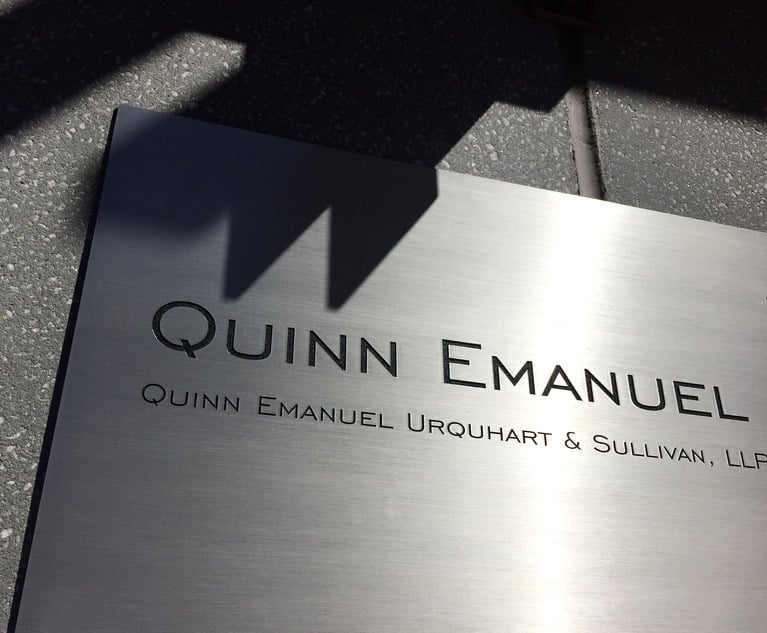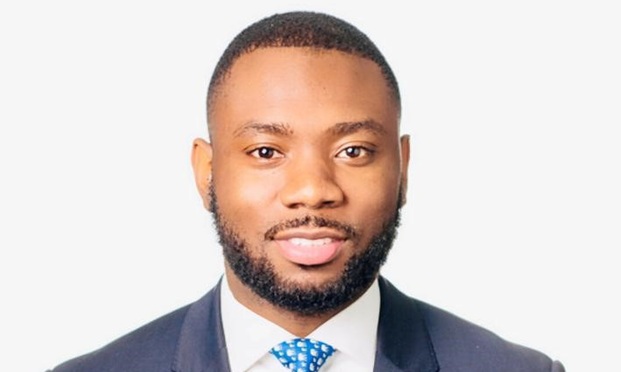One Black British Lawyer's Take on UK Racism And 'Elitist' Law
The Dechert London trainee discusses his thoughts on the nature of racism in the UK and how the legal industry still has much to do.
June 15, 2020 at 04:00 AM
4 minute read
As part of our series of articles about race and the legal industry, Dechert London trainee Jonathan Burke pens his thoughts on the unhelpful argument of U.K. vs U.S. racism and how the legal profession must do better when it comes to diversity.
George Floyd's death at the hands of four police officers has been the catalyst for protests throughout the USA and further afield, including here in the U.K. This senseless killing was not an isolated incident. Rather it is the latest symptom of a larger, systemic issue.
In a BBC interview soon after the murder, George the Poet, a musician and podcaster, was asked why black people in the UK were so riled by this latest injustice.
Often, those in power in Britain seem to want some kind of commendation for what is deemed a more palatable version of racism in this country.
"You're not putting America and Britain on the same footing?" the presenter asked. "Our police are not armed… the legacy of slavery is not the same."
The presenter is perhaps unaware that up until 2015, British taxpayers were still paying compensation to former slave owners for the loss of their 'property'. Often, those in power in Britain seem to want some kind of commendation for what is deemed a more palatable version of racism in this country.
This perception is not only wrong, it is dangerous. The families of Rashan Charles, Sarah Reed and Julian Cole, all victims of police brutality in the U.K., would likely dispute this view. Furthermore, this fallacy breeds a complacency that nothing more needs to be done to combat racism.
As a young black lawyer, these last few weeks have been exhausting. I have experienced a myriad of emotions, whilst still working hard to continue to meet client deadlines. This has been extremely difficult. All of this is set against the backdrop of the coronavirus pandemic, with black people four times more likely to die of COVID-19 compared to white people.
Law is an elitist profession which continues to lack diversity. My firm has been excellent at helping me to feel comfortable and empowered to express my views. However, as is the case throughout the profession, the majority of my colleagues are not directly affected by issues of race.
Like many black lawyers, I feel as if I have had to work twice as hard to get where I am today. Most of my colleagues don't know what it's like to deal with micro-aggressions, or to be the only black person in a classroom, at an assessment day, in a trainee intake, in a meeting, in a department or in an office.
George Floyd's death and its aftermath has crystallised many of the issues black professionals face. This feels like a turning point. Many businesses have spoken out and donated to causes fighting racism.
Law firms must take this opportunity to assess what more can be done to combat the glaring lack of diversity. Diversity statistics which group all ethnic minorities together under the 'BAME' umbrella, mask the struggles faced by black lawyers.
The attrition rate of black associates across the industry is startling. The number of black partners is not representative of wider society. Law Society figures state that across the profession, just 1.6% of partners are black, falling to 0.6% at the largest firms. Some firms remain reluctant to address their recruitment policies or provide training on issues such as white privilege and unconscious bias.
This feels like a watershed moment. I hope law firms are prepared to be on the right side of history.
Read More
When #BlackLivesMatter Calls For Urgent Change, It's Looking at Law Firms Too
This content has been archived. It is available through our partners, LexisNexis® and Bloomberg Law.
To view this content, please continue to their sites.
Not a Lexis Subscriber?
Subscribe Now
Not a Bloomberg Law Subscriber?
Subscribe Now
NOT FOR REPRINT
© 2025 ALM Global, LLC, All Rights Reserved. Request academic re-use from www.copyright.com. All other uses, submit a request to [email protected]. For more information visit Asset & Logo Licensing.
You Might Like
View All
X Ordered to Release Data by German Court Amid Election Interference Concerns

Compliance With the EU's AI Act Lags Behind as First Provisions Take Effect

Quinn Emanuel's Hamburg Managing Partner and Four-Lawyer Team Jump to Willkie Farr

Trump ICC Sanctions Condemned as ‘Brazen Attack’ on International Law
Law Firms Mentioned
Trending Stories
- 1ACC CLO Survey Waves Warning Flags for Boards
- 2States Accuse Trump of Thwarting Court's Funding Restoration Order
- 3Microsoft Becomes Latest Tech Company to Face Claims of Stealing Marketing Commissions From Influencers
- 4Coral Gables Attorney Busted for Stalking Lawyer
- 5Trump's DOJ Delays Releasing Jan. 6 FBI Agents List Under Consent Order
Who Got The Work
J. Brugh Lower of Gibbons has entered an appearance for industrial equipment supplier Devco Corporation in a pending trademark infringement lawsuit. The suit, accusing the defendant of selling knock-off Graco products, was filed Dec. 18 in New Jersey District Court by Rivkin Radler on behalf of Graco Inc. and Graco Minnesota. The case, assigned to U.S. District Judge Zahid N. Quraishi, is 3:24-cv-11294, Graco Inc. et al v. Devco Corporation.
Who Got The Work
Rebecca Maller-Stein and Kent A. Yalowitz of Arnold & Porter Kaye Scholer have entered their appearances for Hanaco Venture Capital and its executives, Lior Prosor and David Frankel, in a pending securities lawsuit. The action, filed on Dec. 24 in New York Southern District Court by Zell, Aron & Co. on behalf of Goldeneye Advisors, accuses the defendants of negligently and fraudulently managing the plaintiff's $1 million investment. The case, assigned to U.S. District Judge Vernon S. Broderick, is 1:24-cv-09918, Goldeneye Advisors, LLC v. Hanaco Venture Capital, Ltd. et al.
Who Got The Work
Attorneys from A&O Shearman has stepped in as defense counsel for Toronto-Dominion Bank and other defendants in a pending securities class action. The suit, filed Dec. 11 in New York Southern District Court by Bleichmar Fonti & Auld, accuses the defendants of concealing the bank's 'pervasive' deficiencies in regards to its compliance with the Bank Secrecy Act and the quality of its anti-money laundering controls. The case, assigned to U.S. District Judge Arun Subramanian, is 1:24-cv-09445, Gonzalez v. The Toronto-Dominion Bank et al.
Who Got The Work
Crown Castle International, a Pennsylvania company providing shared communications infrastructure, has turned to Luke D. Wolf of Gordon Rees Scully Mansukhani to fend off a pending breach-of-contract lawsuit. The court action, filed Nov. 25 in Michigan Eastern District Court by Hooper Hathaway PC on behalf of The Town Residences LLC, accuses Crown Castle of failing to transfer approximately $30,000 in utility payments from T-Mobile in breach of a roof-top lease and assignment agreement. The case, assigned to U.S. District Judge Susan K. Declercq, is 2:24-cv-13131, The Town Residences LLC v. T-Mobile US, Inc. et al.
Who Got The Work
Wilfred P. Coronato and Daniel M. Schwartz of McCarter & English have stepped in as defense counsel to Electrolux Home Products Inc. in a pending product liability lawsuit. The court action, filed Nov. 26 in New York Eastern District Court by Poulos Lopiccolo PC and Nagel Rice LLP on behalf of David Stern, alleges that the defendant's refrigerators’ drawers and shelving repeatedly break and fall apart within months after purchase. The case, assigned to U.S. District Judge Joan M. Azrack, is 2:24-cv-08204, Stern v. Electrolux Home Products, Inc.
Featured Firms
Law Offices of Gary Martin Hays & Associates, P.C.
(470) 294-1674
Law Offices of Mark E. Salomone
(857) 444-6468
Smith & Hassler
(713) 739-1250









